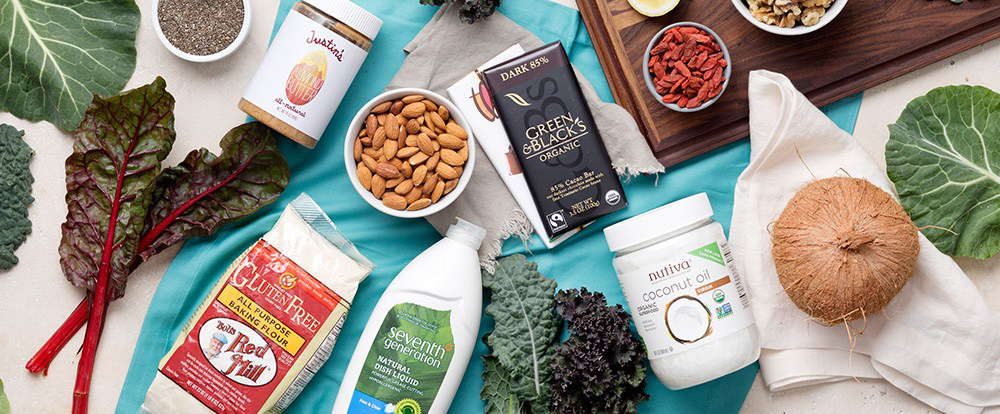We write a lot about the many benefits of coconut oil for people, but we haven’t yet said much about coconut oil for pets. We’ve also been getting a lot of questions about this on our facebook page, so there’s definitely interest. Well, it’s for good reason because coconut oil is a healthy and beneficial supplement for animals, too! Please check with your vet before altering your animal’s diet. We are not veterinarians and cannot dispense professional advice!

Copyright 2015-2017, Coconut-Oil-Tips.com. You may share on Pinterest, Facebook with credit to this site, etc.
Coconut Oil for Pets: The Uses
1. Prevent hairballs
 Hairballs are unsightly things, often a symptom of a larger digestive issue. When the digestive tract is inefficient, it’s usually because of diet. Adding a bit of coconut oil to the cat’s diet helps! Work up to a teaspoon per day per ten pounds — too much at once is too detoxifying and can upset stomach-bacteria balance. Cats on dry foods have difficulty moving fur through their systems: This remedy seems to be popular because coconut oil is lubricating and healthy in general. Wet foods and a small amount of added fiber helps immensely. (Check out these coconut fiber snacks.) It also helps to brush your cat regularly, wiping them down afterward with a cat-safe wipe. Coconut oil may not be the best choice for a act who is obese, however. For more information, check out this article.
Hairballs are unsightly things, often a symptom of a larger digestive issue. When the digestive tract is inefficient, it’s usually because of diet. Adding a bit of coconut oil to the cat’s diet helps! Work up to a teaspoon per day per ten pounds — too much at once is too detoxifying and can upset stomach-bacteria balance. Cats on dry foods have difficulty moving fur through their systems: This remedy seems to be popular because coconut oil is lubricating and healthy in general. Wet foods and a small amount of added fiber helps immensely. (Check out these coconut fiber snacks.) It also helps to brush your cat regularly, wiping them down afterward with a cat-safe wipe. Coconut oil may not be the best choice for a act who is obese, however. For more information, check out this article.
2. Condition fur/hair
The topical use of coconut oil is popular because of the oil’s natural disinfecting and healing properties. The medium chain triglycerides are effective antifungal, antibacterial, and antiviral compounds. And of course, it popular as a deep conditioner among people. The benefits extend to Fido and Fluffy as well.
3. Soothes dry noses
A dry nose isn’t always a sign your pet is sick. That said, coconut oil can be soothing to dry skin!
4. Paw protection
Dry, cracked paw pads are easily moisturized with coconut oil. It’s also an easy way to administer the oil for your pet to lick off themselves!
5. Ear mite remedy
Some people use coconut oil in place of other popular oils for natural treatment of ear mites in kittens and other pets.
6. Natural pet toothpaste / Aids oral health and breath
 Since pets tend to swallow what you put on their teeth, some dog owners prefer to use coconut oil for teeth cleaning. They just use it in place of pet toothpaste on a toothbrush. (Coconut oil is also popular for people to use for oil pulling, a deep cleaning of the gums based on ayurvedic practices.)
Since pets tend to swallow what you put on their teeth, some dog owners prefer to use coconut oil for teeth cleaning. They just use it in place of pet toothpaste on a toothbrush. (Coconut oil is also popular for people to use for oil pulling, a deep cleaning of the gums based on ayurvedic practices.)
7. Treat ingredient
There are so many recipes for doggie treats made using coconut oil as an ingredient! Try this one. Other popular ingredients in dog treats include peanut butter, sweet potatoes, and bacon! There are also storebought coconut oil treats your pets might just love, like these and these.
8. Flea repellent
The lauric acid in coconut oil can work as a natural flea repellent for dogs. Use unrefined, virgin coconut oil and apply lightly over your dog’s fur. You can also mix 1 part coconut oil with 2 parts water and boil them before transporting to a spritzer bottle to lightly spray your pup.
9. Dog shampoo ingredient
Homemade dog shampoos are a fun way to clean your pet. Coconut oil is moisturizing to fur, so it’s a popular ingredient! It doesn’t take much though. Other common ingredients are distilled white vinegar, baby shampoo, and essential oil. (Always research ingredients and do allergy patch tests first!) Here’s a list of dog shampoo recipes, or you can check out storebought coconut oil dog shampoos like these.
10. Soothes hotspots on skin
Applying coconut oil topically as well as supplementing the diet are helpful for hot spots. Topical coconut oil can soothe all kinds of skin ailments, like dryness and itchiness, and even help disinfect minor injuries.
11. Supports healthy digestion
Coconut oil is known to keep humans “regular” as well as to provide a quick source of energy. Plus, it clears the body of toxins and bacteria like yeast and is anti-inflammatory. The benefits extend to your animal as well. Be sure to start small though, and build up to a maximum of one teaspoon per 10 pounds or one tablespoon per 30 pounds. As helpful as it is, there’s such a thing as too much because of coconut oil’s strong detox properties.
12. Quick energy booster
Coconut oil’s medium chain fatty acids are uniquely digested with rapid breakdown by the liver with no extra enzymes needed. This means the fat is converted quickly to energy instead of winding up stored as fat on the body.
13. Supports Healthy weight
Coconut oil is a fat that is touted to boost the metabolism and provide energy.
14. Thyroid support
Polyunsaturated fats block the thyroid from secreting thyroid hormone and slow you down. Coconut oil’s fats boost thyroid activity. It creates a boost in energy levels, higher metabolism, and higher fat burn.
15. Bone and joint health
Human sufferers of arthritis report that internal and topical use of coconut oil helps lubricate and heal the area.
Coconut Oil Pet Benefits
-
- Unusually healthy type of fat: Coconut oil is a primarily saturated fat with a structure similar to mother’s milk. These rare in nature medium chain triglycerides improve health and immunity. (Read more about why here). It’s popular with people for its antifungal, antibacterial, antioxidant, and antimicrobial properties. These properties can increase your pet’s resistance to illness and keep him healthy.
- Better mineral absorption: Coconut oil will help your pet’s body absorb other minerals from his daily diet. The minerals in his regular food will be more effective.
- Filling, reduces hunger: The medium chain fatty acids in coconut oil can help prevent nutritional deficiencies and reduce your pet’s hunger between meals. It can reduce your pet’s risk of becoming overweight, but it is an oil and thus is somewhat high calorie, so talk to your vet.
- More energy: When you give coconut oil to your cat or dog, he will have more natural energy. When he has coconut oil regularly, his coat and skin will be healthier. It promotes healthier digestion, bone health, and a healthy immune system. Coconut oil is good for every system of your pet’s body.
- Coconut Oil for Parrots:
 The benefits of coconut oil for pets are not limited to cats and dogs. If you own a pet bird, coconut oil is good for him, too. Feathers will become shiny, glossy, and more attractive. His feathers will even become stronger when he consumes coconut oil regularly.
The benefits of coconut oil for pets are not limited to cats and dogs. If you own a pet bird, coconut oil is good for him, too. Feathers will become shiny, glossy, and more attractive. His feathers will even become stronger when he consumes coconut oil regularly.
How To Give Coconut Oil To Your Pets
- Added to Food – The simplest way to provide coconut oil to your pet is to mix it into his food. You should start with a small amount, and gradually increase it to a larger amount. When you first start giving him coconut oil, limit it to 1/4 teaspoon or less. When you increase the amount, do not give him more than one teaspoon of coconut oil for every ten pounds of his body weight. Pets can experience diarrhea from consuming too much coconut oil when their bodies are not used to it. If you have a bird, you can lightly coat his bird seed with the oil.
- Refrigerated Portions – You might also like to dab out “dots” of coconut oil onto wax paper and refrigerate for individual servings. The same can be done with an ice cube tray. Just melt the oil (at a low melting point of 76 degrees) and pour into the mold at the proper dosage for your pet! (When you first start giving them coconut oil, limit it to 1/4 teaspoon or less and over a month work up to 1 tsp per 10 pounds or 1 tbs per 30 pounds.)
- In Doggie biscuits – Coconut oil is a great ingredient in popular homemade dog biscuit recipes.
- Straight from the spoon – Some pets love the taste of coconut oil. If your pet seems to enjoy the taste, you can feed it to him with a spoon.
- Bird’s beak – As coconut oil will help a bird’s beak stay strong and healthy, you can apply a small amount of oil directly to the bird’s beak.
- Applied topically – An added benefit of using coconut oil to promote skin health is the oil is completely natural. If your pet licks the oil off his skin, he will not experience any harmful effects. However, if he licks the oil off before it has a chance to work, you can discourage this habit. Wrap the area of his body where you have applied the oil with a clean towel or cloth. This will keep the oil on his skin so it can be effective.
- Coconut meat chips or tablets – Some company’s make coconut chips for pets out of coconut meat, and say they impart the same benefits as the oil. For example, CocoTherapy makes this popular pet snack:

|
Coconut Oil Capsules – Unrefined 100% USDA Certified
|
|
Coconut Oil Pets Side Effects?
It’s always important to talk to your pet’s vet about any dietary changes or treatments before embarking on them. While coconut oil is a healthy, beneficial fat that is safe for animal consumption, use common sense and moderation, as it IS a fat and it is not NECESSARY for pets to consume. Please make sure you use virgin, UNREFINED oil, and always use moderation, common sense and your veterinarian’s advice.
In Conclusion
Natural products are always best when you are caring for a pet. It is not surprising that coconut oil for pets provides so many benefits. When you want your cat, dog, or bird to be in excellent health, look good, and have natural energy, coconut oil should be part of his daily diet. You will notice a difference in the way your pet looks and feels. The health benefits may even add years to his lifespan. Including coconut oil in his diet is one of the easiest steps you can take to keep the pet you love healthy and happy. Talk to your vet!












